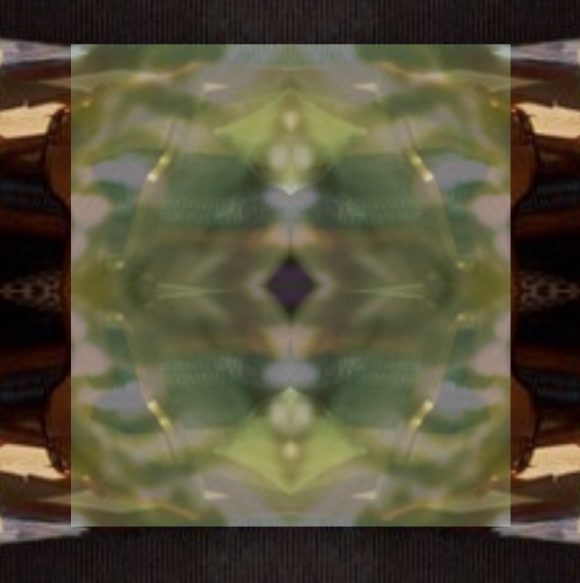I did a poor job, in two of my earlier posts (here and here), of explaining what I meant by the formulation “unreal time” in their titles. I meant it, of course, as an explication of something Durrell has his narrator say. But I should have made the connection clearer.

1. When Durrell’s narrator refers to time as something that characterizes the life of people in the city, he calls it calendar-time, but he also circumscribes it, more concretely, as “desire expressed in heartbeats” (659). This latter expression binds it, on the one hand, to life functions and perhaps the most clearly perceivable rhythm in them (i.e., that of the heart), and on the other, to desire as primary motivator in living activity. This is how time functions in the real world (that is: in the city).
Then there is a second way in which time can function: but this can only be experienced in liminal retreat, in the reflective space in which the narrator finds himself as he formulates the novel. There, on the Greek island, “you become aware of the operation of a time which is not calendar-time” (667) — and again, more concretely, which is not time expressed as life’s functions and motivations (heartbeats and desires). I have called this ghost-time, which isn’t Durrell’s term, but inspired by his claim that “once you become aware of [it] you become in some sort a ghost” (ibd.).
So according to Durrell’s narrator, there are two “times”, one of which belongs to the real world (i.e., the city). Is this therefore the “real” time, whereas the other then must be “unreal”? I have simply assumed it, mostly because in the post where I introduced it I made a second point out of the narrator’s insistence that “the city is real”. But this was understood to mean “not invented” (i.e. not metaphorical); understood thus, it makes little sense to contrast “real” and “unreal” time — because ghost-time is not invented time. Or is it?
2. The particular thing that makes the narrator aware of this special mode of time, and prompts him to associate it with ghosts, is that “I could hear the echoes of words uttered long since in the past by other voices.” (667) And the ambiguity in this beautiful poetic phrase is perfectly evocative of ghostliness. What does it allude to? Whose voices are meant (other people’s voices, or even voices “from beyond”)? Does he remember the words in question, as having been said to him, or does he hear them now for the first time? (After all, much of the narrative of the second and third novel are based on accounts of others which the narrator wasn’t aware of when he himself lived through the narrated period of calendar-time.) And would the fact that he hears only echoes mean that perhaps the words have, after all, been spoken long ago, and just by a freaky feature of that other domain their echoes never died away, but keep going on eternally…
This all seems to point to a well-known fuzziness in psychological episodes that refer us to a past which we have experienced ourselves. (Scientifically speaking, it was less well understood at Durrell’s time, but he seems to have had a keen awareness of it, anyway.) The fuzziness lies in the fact that memories are only partly like “recordings”; in part, they are like fantasies: the imagination kicks in every time we make the older experiences present to ourselves, fills gaps, confabulates, suppresses unpleasant aspects, and so on. The respective contributions of what we might call actual recall (of facts, impressions, and emotional tone — as they actually were when we originally lived through the experience) and imaginary additions, deletions, and substitutions are difficult to tell apart. And so the memoria that make up the first novel in the Quartet are, as all autobiographical accounts are, part recording and part storytelling.
But only this, of course, is what makes the project of the narrator possible in the first place: we could never “re-live” our own past if memories were just recordings. Re-livings only become alive because we are in fact living them somewhat differently than the last time: namely, no longer as the person we were, but as the person we are now. At the same time, we arrange them in a narrative structure (we tell them as a story). And there again, if the narrative is to be immersive enough to capture our interest, it must evoke a meaning: it must be meaningful, however, to who we are presently (it may or may not have been meaningful in the same way during the original episode).
Both these characteristics subtly detract from calendar-time: they make it less important exactly when and where things happened. They shift us (in the episode of re-living) into a story-world outside the common spatiotemporal grid. (They do this in the same way an immersive novel or movie, or even a video-game do.) And so the form of time that I (following Durrell’s evocative phrases) have called ghost-time could be deemed “unreal” because it is tied to the workings of the imagination. It’s not exactly that “time” itself which is “invented”, of course: we might better say that it is the time of a part-recalled and part-imagined narrative world.
3. The problem, however, with this entire line of thought is that the sense of “unreal” which I have traced in it would be exactly what Durrell’s narrator, with respect of the city, insists on calling “real” — not “unreal”:
The city, half-imagined (yet wholly real), begins and ends in us, roots lodged in our memory. (209)
There is no way around it: in the terminology of the narrator, ghost-time must be on a par, reality-wise, with the city. And yet it is something that can be observed only outside it, in liminal space (that is, in the world of the Quartet, on the Greek island).
Perhaps, then, we should be looking at it the other way round: the city is real, but calendar-time (the time of events in that real city), is unreal, whereas ghost-time (the form of time the narrator discovers while in liminal space) is what is actually real. Since calendar-time is the time of events as experienced by the characters and, crucially, also as remembered by the narrator, it belongs to what is invented (not to what is real) about the city:
[t]he characters in this story […] are all inventions together with the personality of the narrator, and bear no resemblance to living persons. Only the city is real.” (14)
(We might presume the same about place and the causal nexus regarding all those events.) Time, then, is an illusion which fades away (or can be seen through, at least to some degree), in liminal space, which means, in less fancy terms, in the reflective mode of the psyche.



